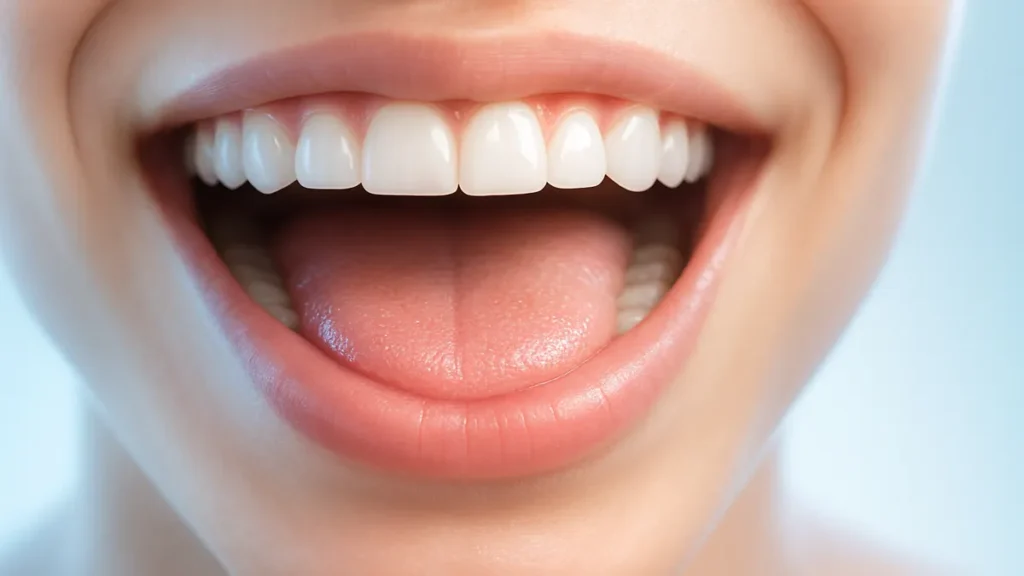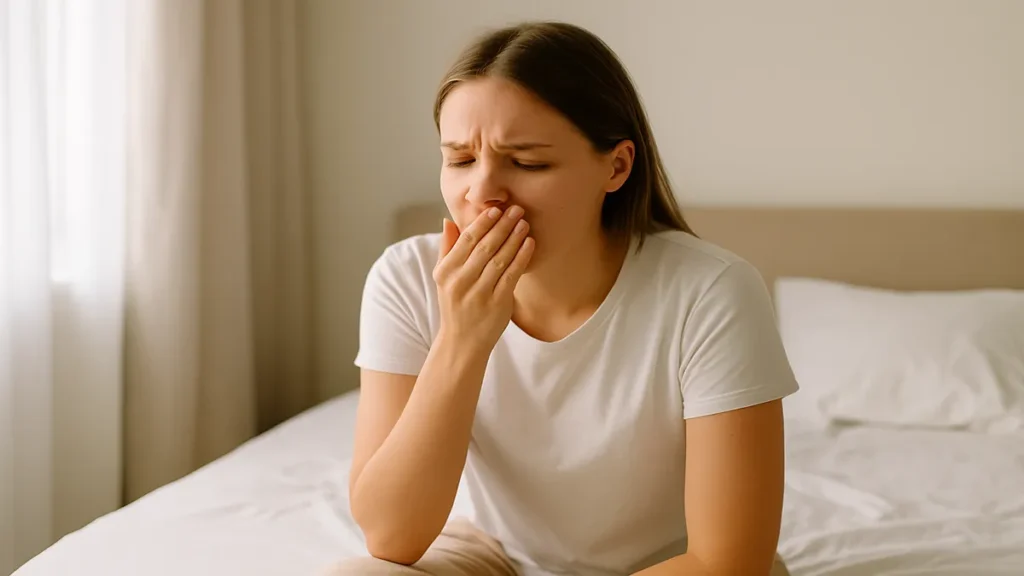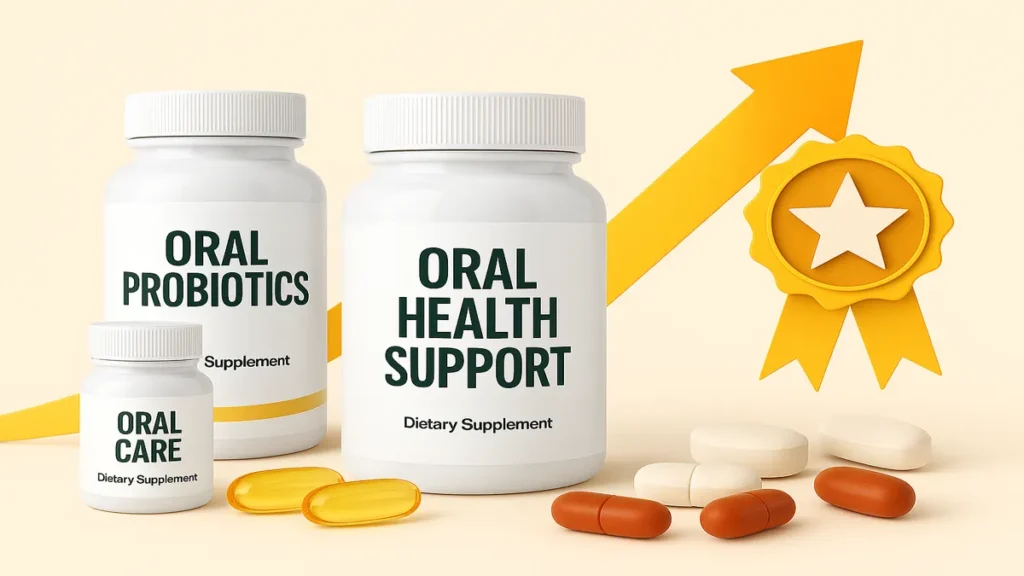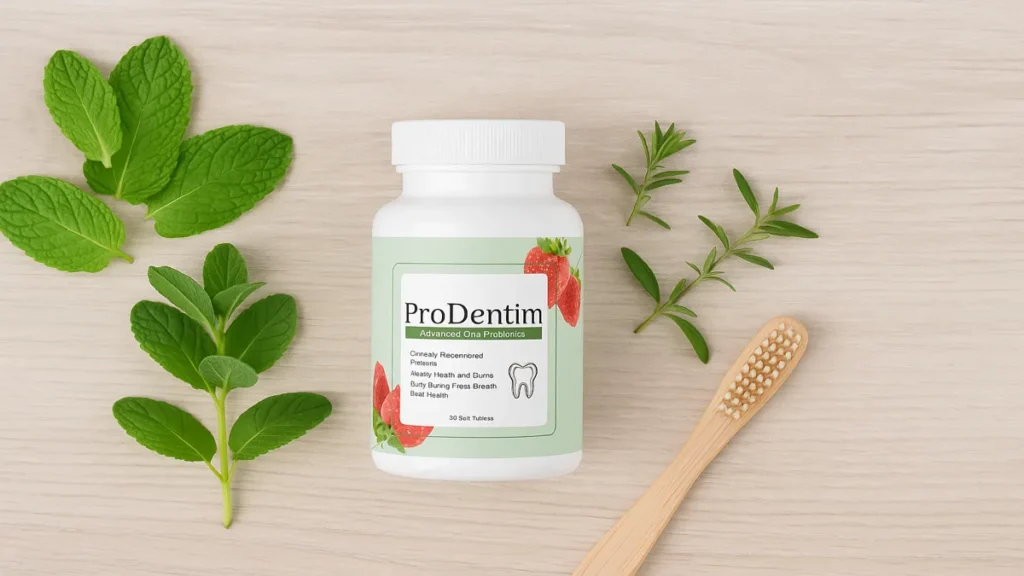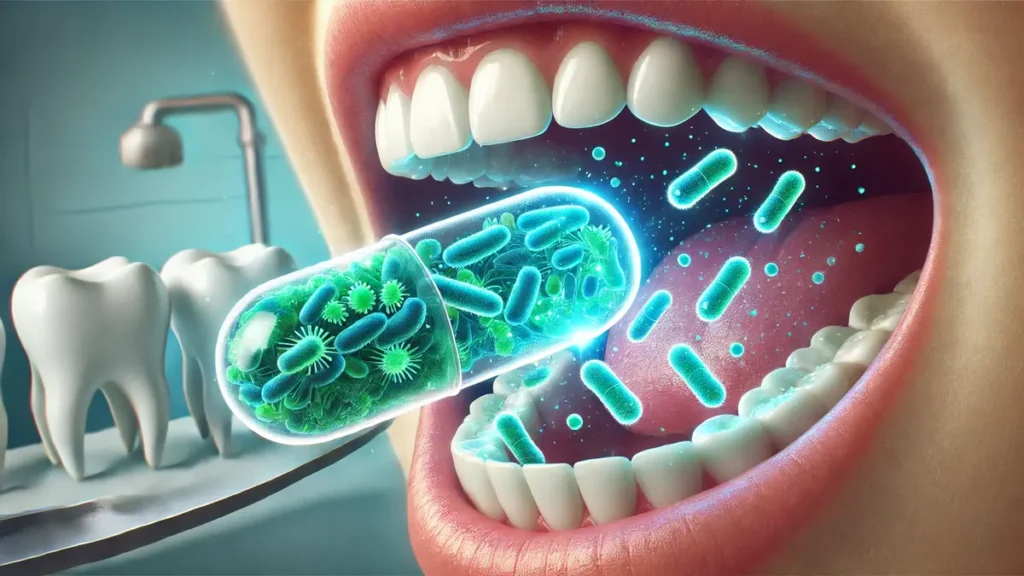
Why does my breath smell even after brushing? You follow the rules — flossing daily, brushing with care, even using mouthwash. But somehow, that stale breath keeps coming back. Quietly. Persistently. It’s frustrating, especially when you take oral hygiene seriously.
The truth is, cleanliness isn’t always enough. While brushing helps the surface, the real issue often starts deeper — with the delicate balance of bacteria in your mouth.
When your oral microbiome is out of sync, bad breath becomes more than a hygiene problem — it’s a microbial one.
The good news? You can fix it from within. This guide explains how to rebalance your mouth naturally, and why some solutions work better than others.
👉 Still struggling with bad breath? See our top-rated oral health supplements here.
Surface Clean Isn’t Always Enough

Brushing feels like a fix. It removes food, polishes enamel, and gives that minty burst. But what it doesn’t touch… is the root of the problem.
Bad breath often hides in deeper places — on the back of your tongue, inside your tonsil crypts, and along your gum pockets. These spots shelter anaerobic bacteria, the kind that thrive without oxygen. They’re quiet, but they produce strong-smelling sulfur compounds.
Even the best toothbrush can’t reach them.
That’s why, even after a perfect hygiene routine, odor can return within hours. The tongue’s biofilm — that thin, sticky layer — traps bacteria. And unless it’s removed, brushing won’t change much.
Mouthwashes may mask the smell. But they rarely rebalance your microbiome. In some cases, they even kill the good bacteria your mouth needs to stay healthy.
For real change, you need more than surface-level cleaning. You need to restore balance — from the inside out.
Hidden Triggers of Persistent Bad Breath

Not all bad breath starts in your mouth. Some triggers are silent, internal — and brushing can’t fix them.
First, mouth breathing is a major cause. It dries out your saliva, which normally helps control bad bacteria. A dry mouth becomes the perfect place for odor-causing microbes to grow fast.
Then comes your diet. Sugary snacks, acidic drinks, or sulfur-rich foods like onions and garlic feed the bacteria that cause bad breath. Even healthy meals can make things worse if digestion is too slow.
Speaking of digestion — issues like acid reflux, bloating, or a sluggish gut can push unpleasant odors up into your mouth. This type of breath doesn’t start on your tongue. It starts deeper — in your stomach.
Don’t forget stress. When you’re tense, saliva flow drops. Your breath suffers. And if you’re taking medications like antihistamines, antidepressants, or diuretics, dry mouth can become a daily struggle.
All of these hidden factors add up — making your breath worse, even when your hygiene is spotless.
The Real Root: Microbiome Imbalance

Your mouth isn’t just a space for teeth and gums — it’s a living ecosystem.
This oral microbiome hosts billions of bacteria, both good and bad. When they’re in balance, they protect your breath, gums, and enamel.
But when the bad guys take over?
That’s when problems begin. Persistent odors, gum irritation, and even recurring plaque are signs of a disrupted microbiome.
This isn’t something toothpaste can fix.
Mouthwash might wipe out bacteria — but it doesn’t choose sides. It kills the good along with the bad, making the imbalance worse.
To truly reset your breath, you need to restore the helpful strains. That’s where oral probiotics come in. These beneficial bacteria crowd out odor-causing microbes and help your mouth defend itself — naturally.
👉 Discover microbiome-balancing solutions in our expert-reviewed supplement guide.
What You Can Do That Actually Works

You’ve tried brushing harder, rinsing more often, chewing gum all day. But the truth is — lasting results come from smarter habits, not just more effort.
🪥 Clean Better, Not Just More
Brushing is a start, but you need to go further. Use a tongue scraper every morning — it clears the biofilm that traps bacteria.
Rinse with a pH-balanced mouthwash that doesn’t kill your good bacteria. And most importantly, stay hydrated. A dry mouth is the enemy of fresh breath.
🦠 Rebuild the Bacterial Balance
When the microbiome is off, no hygiene routine can fix it.
The solution? Targeted oral probiotics. These help repopulate your mouth with beneficial bacteria that crowd out the bad ones — naturally and gently.
🍽️ Support Your Digestion Too
Bad breath doesn’t always start in your mouth. If digestion is slow or unbalanced, odors can rise from within.
Add digestive enzymes or gut-focused probiotics to your routine — they reduce fermentation and lower the risk of stomach-sourced bad breath.
Together, these actions tackle the cause — not just the symptoms. It’s not about doing more. It’s about doing what actually works.
When It’s Time to Go Deeper

You follow the right steps. Your hygiene is on point. Still, that lingering breath keeps coming back.
At that point, it’s not about brushing harder — it’s about addressing what’s underneath.
When your breath stays bad despite a solid routine, the root cause is likely internal. Most often, it’s tied to a microbiome imbalance in your mouth or gut. And unless you shift that internal terrain, no surface solution will last.
🌱 To change your breath for good, you need to change the environment that fuels the problem.
👉 Tired of chasing temporary fixes? See our top-rated supplements that work from the inside out.
FAQ — Bad Breath After Brushing: Your Questions Answered
Because brushing only cleans the surface. It doesn’t fix deeper issues like tongue biofilm, dry mouth, or bacterial imbalance.
Sometimes. Conditions like acid reflux, sinus infections, or diabetes can affect your breath. If the problem persists despite good hygiene, it’s smart to talk to your doctor.
Yes — especially if your bad breath comes from microbiome imbalance. Oral probiotics restore good bacteria and reduce odor at the root.
Many people feel fresher in 3 to 7 days. For gum health or deeper balance, allow 2 to 4 weeks of consistent use.
Possibly. Alcohol-based products can dry out your mouth and kill good bacteria. Go for gentle, pH-balanced options that support your microbiome instead.


